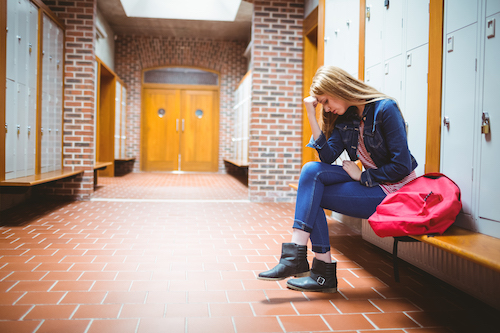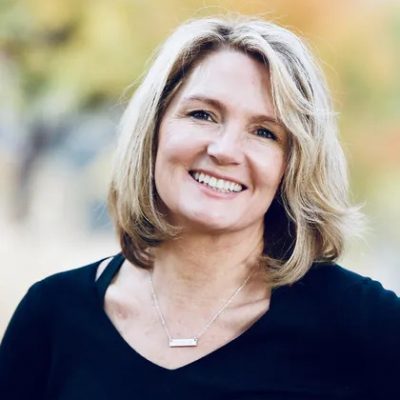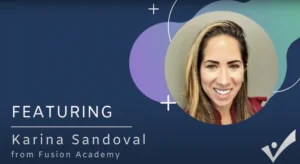Action Alleviates Anxiety
Overcoming anxiety by walking through
Conversations about anxiety have grown tremendously in the last ten years. The amount of recent support and awareness for people who are struggling is nothing short of amazing. But even with this awareness, it can be hard to find solutions when anxiety is getting the best of us. It can be a crippling, lonely experience. Children and young adults prone to anxiety are under extra pressure during their tenure as students. The added stress of school work and responsibilities can lead to other issues like failing classes, isolation, and depression.
Anxiety on your academic journey
 Many things can trigger anxiety—it can be caused by certain environments, people, or pressures. It’s a negative experience that brings a rush of thoughts and discomfort. I’ve had one of my students describe anxiety as ‘like trying to memorize all the conversations going on inside of a crowded restaurant. It’s so overwhelming!’ They have so many thoughts running through their minds, but can’t seem to focus on a single thread, making it impossible to get things done. The physical reactions to anxiety can be just as challenging. For example, body temperatures rising, increased perspiration, and shortness of breath.
Many things can trigger anxiety—it can be caused by certain environments, people, or pressures. It’s a negative experience that brings a rush of thoughts and discomfort. I’ve had one of my students describe anxiety as ‘like trying to memorize all the conversations going on inside of a crowded restaurant. It’s so overwhelming!’ They have so many thoughts running through their minds, but can’t seem to focus on a single thread, making it impossible to get things done. The physical reactions to anxiety can be just as challenging. For example, body temperatures rising, increased perspiration, and shortness of breath.
As a high school or college student, the pressure is on. Students are in a transition period where they’re trying to figure out who they are and what they’re supposed to be doing with their lives. All this while maintaining good grades, relationships, a job, extracurriculars and (hopefully!) having fun. The thought of this balancing act alone can bring up feelings of worry and discomfort. We tend to overlook the stress students are under because we think they’re young and carefree. But that doesn’t make them immune to stress or anxiety.
Action alleviates anxiety
In my years dealing with my anxiety and helping students overcome theirs, I have found that action alleviates anxiety. This might mean starting on the essay outline you’ve been avoiding, cleaning your room, or going on a run. The action will look different for everyone depending on their situation. This isn’t the easiest of tasks, especially when you’re in the middle of an anxiety attack. But sometimes the only way out of the fire is to walk right through it.
 Here’s what this concept looked like in practice for a student named Angel who was in her second year of trade school. She had issues with severe anxiety at the end of each term— the pressure of finals caused anxiety and shutdowns that led to depression. During this time she would visit my office more often for a break. At first, it seemed like she wanted someone to talk to and get away from class, but her mood became more anxious and her instructors told me she seemed distracted during class. I started to investigate with her about what was going on. She told me that she had a lot of work and studying to do—but she kept procrastinating due to her anxiety. She said, “I don’t like having so many things to do all at once.” I told her that anxiety won’t go away by avoiding work, it will only mean more work down the road with less time to accomplish it.
Here’s what this concept looked like in practice for a student named Angel who was in her second year of trade school. She had issues with severe anxiety at the end of each term— the pressure of finals caused anxiety and shutdowns that led to depression. During this time she would visit my office more often for a break. At first, it seemed like she wanted someone to talk to and get away from class, but her mood became more anxious and her instructors told me she seemed distracted during class. I started to investigate with her about what was going on. She told me that she had a lot of work and studying to do—but she kept procrastinating due to her anxiety. She said, “I don’t like having so many things to do all at once.” I told her that anxiety won’t go away by avoiding work, it will only mean more work down the road with less time to accomplish it.
Breaking down your tasks to get started
I suggested that she break down what she needed to do for each class and what work needed to be done for each project. She was very detailed so we could look at the work she had ahead of her. I could tell just by looking at her that she felt a little relief just by organizing her tasks. She was by no means anxiety-free, but she was more invested in what she was doing. I told her that sometimes you just need to start on things to relieve a little bit of that anxiety—then you can ride that momentum. Over the next two weeks, she would come meet with me to share her progress. When she started to feel anxious she would push through her thoughts and remember her action plan. She told me that by getting more things done, she felt less anxious.
Focusing on other activities to cope
Some times were harder than others, and Angel would need to take a break completely from homework. Instead of shutting down and dissociating, she would do something active like walking her dog. The same concept of action alleviates anxiety applies here: you are using action to bring yourself to a place where you can focus on what you need to do. Stepping away and being active can help ease your worries and improve your focus so you can better handle your task.
Over the next few terms, Angel progressed through her classes—and with each final or big project, she learned how to better push through. She was not anxiety-free, but she found more ways to stay focused and get to work on the things that are important to her.
Your turn to take action
 Angel had great success using action to alleviate anxiety, but I want to remind you that taking action isn’t always going to be an easy task—it takes practice to find what works best for you. We can’t always jump into action when we are suffering from anxiety. Use the coping mechanisms that have helped to center you in the past, like listing your tasks or breathing exercises. Start taking action when you’re feeling grounded, and remember that your action doesn’t always have to be related to the task you need to complete. The action can be organizing your study space or cleaning your room (Having clean surroundings can help to alleviate anxiety before you begin studying.) It’s killing two birds with one stone—you are more organized and have gotten into action by doing something.
Angel had great success using action to alleviate anxiety, but I want to remind you that taking action isn’t always going to be an easy task—it takes practice to find what works best for you. We can’t always jump into action when we are suffering from anxiety. Use the coping mechanisms that have helped to center you in the past, like listing your tasks or breathing exercises. Start taking action when you’re feeling grounded, and remember that your action doesn’t always have to be related to the task you need to complete. The action can be organizing your study space or cleaning your room (Having clean surroundings can help to alleviate anxiety before you begin studying.) It’s killing two birds with one stone—you are more organized and have gotten into action by doing something.
Through your journey with anxiety, remember to find what works best for you and listen to your body. Sometimes the only way through the fire is to walk right through—you got this!

M.Ed., BCC, CSS and Co-founder of Thrivister
As co-founder of Thrivister, my purpose and passion is to help young adults with executive function challenges to thrive: manage, organize and be successful in their academics, careers and life. My successful EFS Coaching Method and journey as an ADHD coach, career service specialist, author, blogger, podcaster and board-certified coach for over a decade, has laid the foundation for our platform.
We believe opportunities are plentiful for someone with executive function challenges when they have the support and resources behind them. It is our mission through Thrivister to help as many people as possible be successful academically and into their future careers and life.

7 Trailblazing Celebrities and Icons Living & Thriving with ADHD
Explore the inspiring journeys of 7 influential individuals who have harnessed their ADHD to achieve greatness and make a lasting impact.

Unveiling the Complexities of ADHD: Insights from Dr. David Pomeroy
Unveiling the Complexities of ADHD: Insights from Dr. David Pomeroy https://youtu.be/EotABukIxlo Attention Deficit Hyperactivity Disorder (ADHD) is a multifaceted condition that impacts millions of lives

Navigating ADHD in Teens: Insights from MFT, Kelsey Thompson
Navigating ADHD in Teens: Insights from MFT, Kelsey Thompson https://youtu.be/omQndscdD5U In a recent interview with Kelsey Thompson, a seasoned Marriage and Family Therapist at The

Unlocking Potential: A Glimpse into Fusion Academy’s Personalized Education Model
Unlocking Potential: A Glimpse into Fusion Academy’s Personalized Education Model https://youtu.be/R7BgYW6A6k4 In the bustling world of education, where traditional models often struggle to meet the

Embracing Diversity: Navigating Support for Disabilities in Education
Accommodations in college and beyond come mainly from Section 504, which covers conditions as varied as anxiety and ulcerative colitis, ADHD and asthma, quadriplegia, and cancer. As more students qualify for disability accommodations and feel empowered to take them, long-stigmatized diagnoses have transformed into points of identification and affinity.

Sacramento Country Day School
A beautiful, expansive campus specifically developed to serve Pre-K through 12th grade students across our Lower, Middle, and High School. Small class sizes and a dynamic learning environment offer our students opportunities to discover and joyfully pursue their unique strengths.

Meristem
Meristem is a unique program dedicated to preparing neurodiverse young adults for a life of greater independence and fulfillment. We are located near Sacramento, California, on a 13-acre campus in Fair Oaks. Meristem students are young adults, between the ages of 18-28, who show the potential to achieve greater independence and self-sufficiency upon graduation. They often have aspirations for career and/or college, and are willing to discover and work towards their passions and goals. Space is currently available to live on-campus and gain independent living and social skills while attending our day program or pursuing college or employment goals. Ask about scholarships opportunities for families eligible for financial assistance.

